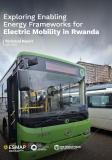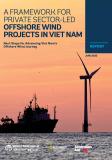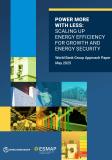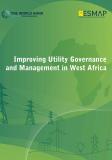Publications

Regional transmission infrastructure is essential for cross-border power exchanges and decarbonization. By integrating diverse low carbon sources, it allows countries with abundant renewables to export clean energy to high demand areas, while improving system flexibility, resilience, and reliability. Open, non discriminatory access to the regional grid and market is therefore critical. A sound regional regulatory framework should define market rules, grid codes, transmission tariffs, and include robust enforcement and dispute resolution mechanisms. This abstract focuses on transmission cost allocation and pricing.
Conventional allocation methods—the territorial principle (splitting costs by line length within each country) and charging individual sector agents involved in cross border trades—have often distorted trade and discouraged investment. To address these drawbacks, the guidelines endorse a single system paradigm, treating regional trade as if it occurs within one jurisdiction. Tariffs should balance cost recovery, economic efficiency, fairness, and predictability. Five principles guide the approach: (1) charges cover recognized transmission costs; (2) charges are independent of specific commercial transactions, with costs mainly allocated to countries to avoid tariff pancaking; (3) costs align with benefits, proxied by usage via the average participation method; (4) rules remain stable over time; and (5) charge structures are non distortionary, ideally as annual lump sums.
Implementation benefits from a specialized regional authority for enforcement and dispute resolution. The process recommended is to: identify transmission assets with cross border relevance (including internal lines enabling wheeling); define a standardized revenue requirement for these assets; allocate that requirement across beneficiary countries using average participation; and, finally, have each national regulator compute its regulated transmission charges based on the modified revenue requirement. This ensures equitable, efficient support for regional trade and decarbonization.



